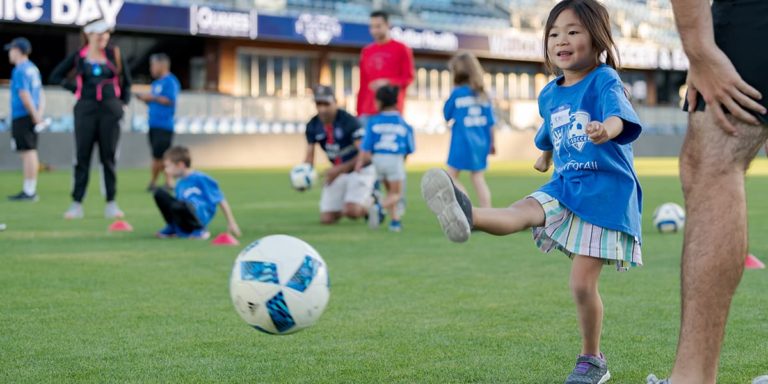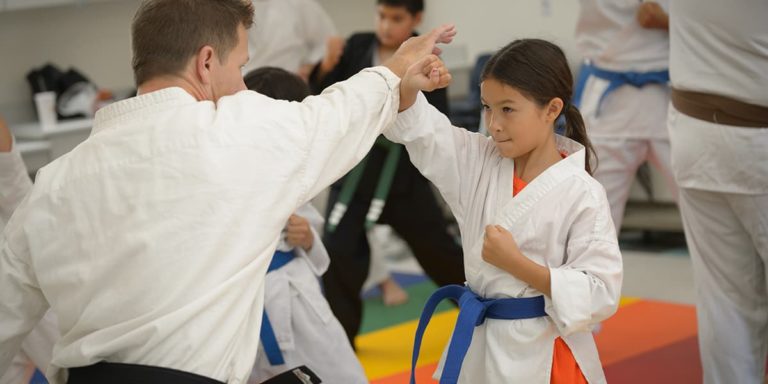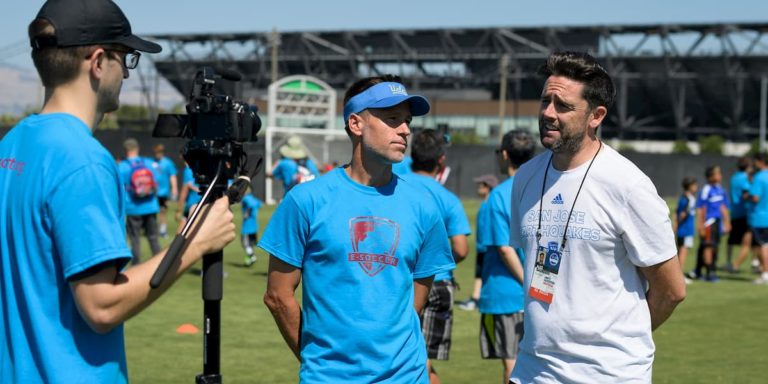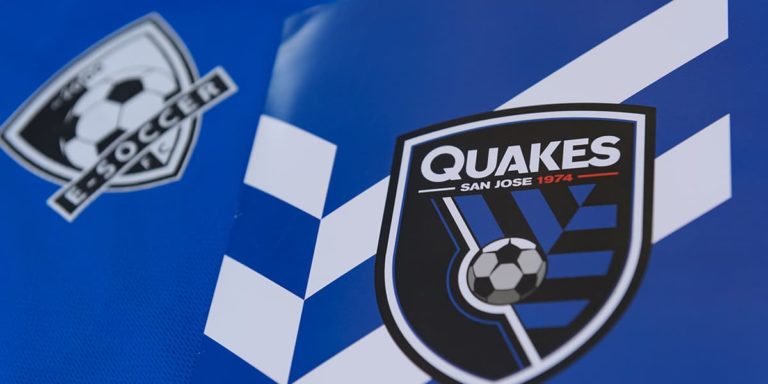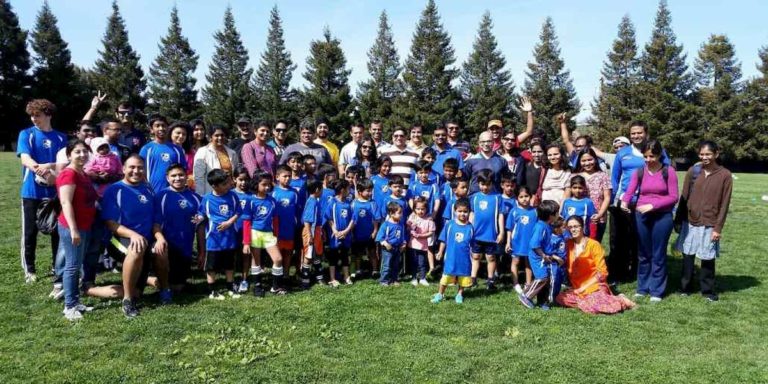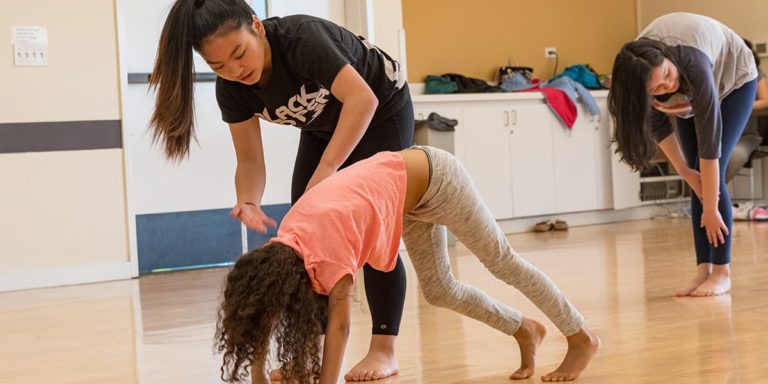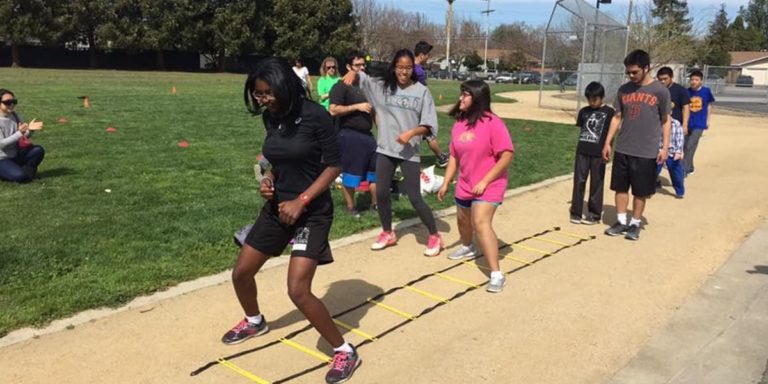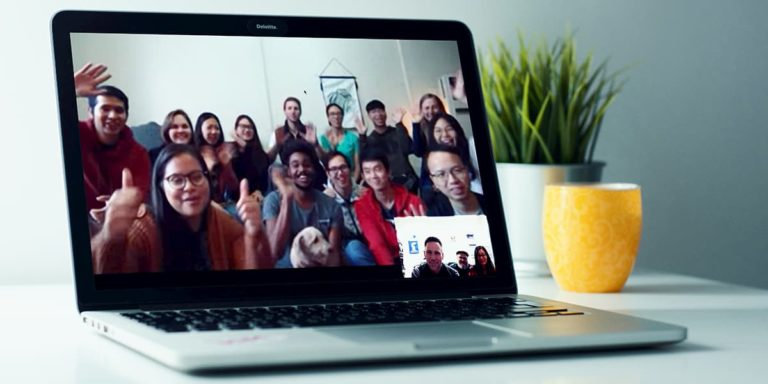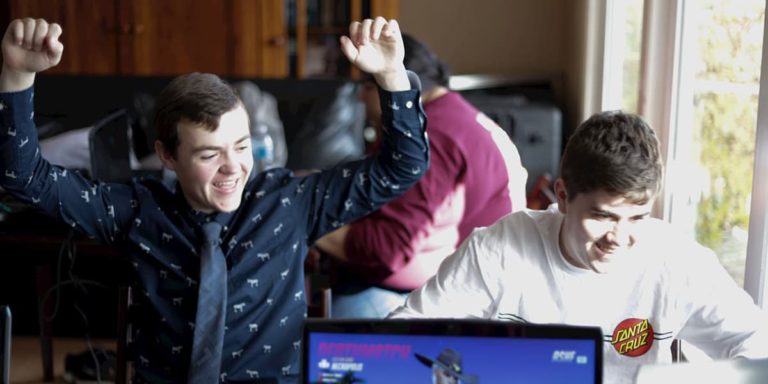How it all began.
From its inception in 2000, the E-Sports journey has pioneered inclusion in sport and already developed a rich history over the past 20 years.
The Inception
The Philosophy
The Timeline
Part One
The inception:
how the idea was born.
It all began with two friends – a dad with two special needs sons and a soccer player – riding in a car discussing a novel idea: a program that would leave no kid behind. Listen to E-Sports founder Russ Ewell and Director Greg Bodzioch discuss the early days that led to the launch of E-Soccer in 2000.
Part Two
The Philosophy:
5 foundational principles.
After the infamous car ride, we went to work crafting what would become the pillars of our inclusive programs.
1. Community
2. Development
3. Coaching
4. Mentoring
5. Influence
1. Community
A number of us can remember playing sports as young children while our parents watched from the sidelines.
It was a place where both we and our parents built lasting friendships.
This was the experience we wanted for every family with special needs – kids on the field making friends while mom and dad do the same with the other parents.
2. Development
We began with a group of experienced soccer players as well as a few therapists (physical, occupational, and even speech).
This team allowed us to determine how best to advance the developmental progress of each child through E-Soccer.
While not every E-Soccer program has this capability, it improves the experience exponentially.
3. Coaching
My own coaching experiences have made me a fan of how much a good coach can do to support parents and their families.
When we began, every soccer coach had to have advanced soccer experience as well as the capacity to teach. New coaches watched from the sidelines until they understood the culture and philosophy of inclusion.
After this, they were allowed come on the field to assist the coaches and, in time, become an official coach themselves. This meticulous care in the selection and development of coaches is one of the core principles necessary for E-Soccer success.
4. Mentoring
The mentoring process was one of our unexpected surprises. We originally selected typical children of the same age or older than our kids with special needs to serve as mentors.
In time, we focused on developing typical middle school age kids as the primary mentors. Younger typical children played alongside their special needs peers. The role of the middle school age mentors was to provide an older brother or sister type relationship.
This led to a number of leaps in progress for our kids with special needs who seemed to learn better when the could imitate the mentors. There were so many marvelous moments when I watched my own son learn how to kick by watching his middle school mentor.
5. Influence
One of the most important things to me was making our program personally beneficial to our typical kids. Volunteering to serve and help kids with special needs holds enormous benefit.
One of the most significant was the impressive development of empathy we watched our typical kids experience. Still we wanted more.
We decided to start personally coaching the typical kids in our program to become excellent soccer players. Our goals were to see them play for their high school teams and beyond. One of the highlights of our program was watching the early morning games between adults and teenagers before the other kids arrived.
If there is a “secret sauce” that makes E-Soccer a magnet for typical kids, it is the benefit to their own athletic progress. The result from our initial group of kids was that we saw a number of them play sports in high school. Most importantly, their influence as athletes allowed them to become life-long protectors, championing their special needs peers from E-Soccer.
Part Three
The Timeline:
How E-Sports has grown.
From one small group of kids and coaches on a middle school field to hundreds of families around the globe, our first 20 years has already developed a rich history.


